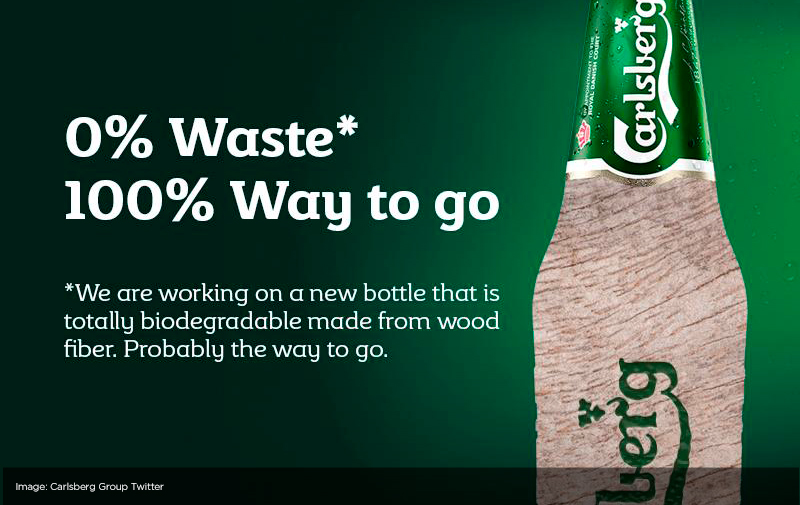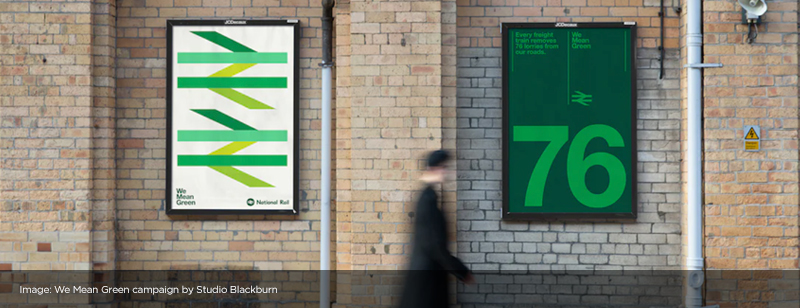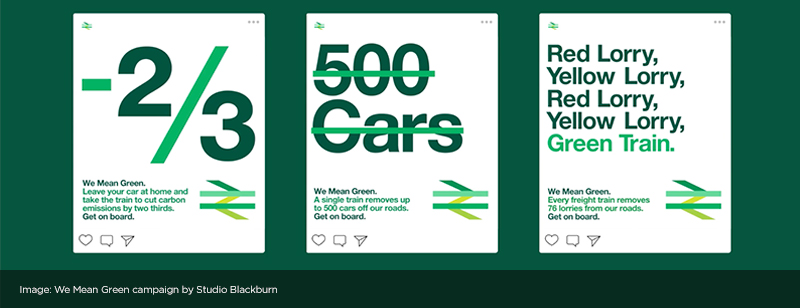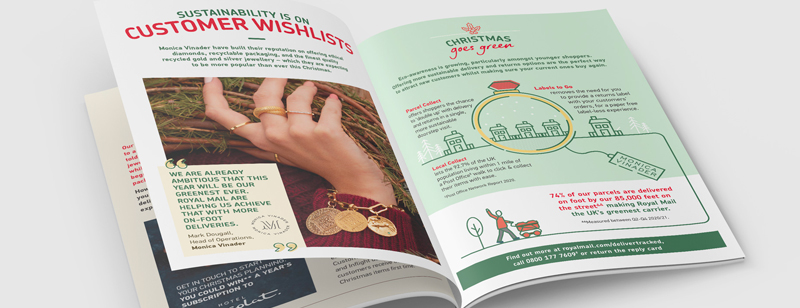
How can brands avoid greenwashing?
Four out of five UK consumers adopted more sustainable lifestyle choices during the Covid-19 pandemic.[1] Perhaps unsurprisingly, this resulted in a third of consumers looking for brands with strong sustainable and ethical credentials.[1]
To respond to these new trends, brands are angling their marketing towards their own green credentials.
This can obviously do a lot of good; shoppers need to be weaned off their non-sustainable practices and strong, creative messaging can communicate the true benefits of being greener.
But in its wake, ‘greenwashing’ has become rife.
Described as “a form of marketing spin in which green PR is deceptively used to persuade the public that an organisation is environmentally friendly,” the label has become the kiss of death for brands putting profits above the planet… whilst claiming they’re doing the opposite.
ExxonMobil, known for one of the biggest oil spills in US history, came under fire for advertising that suggested its experimental algae biofuels could one day reduce transport emissions without having a company-wide net zero target.[2]
In 2018, Nestle released a statement saying it had “ambitions” for its packaging to be 100% recyclable or reusable by 2025. Environmental groups pointed out that the company hadn’t released any actual milestones to reduce and eventually phase out single-use plastics in that time.[2]
There’s one thing that unites ‘greenwashing’, and that’s disingenuousness.
Nestle and ExxonMobil both failed in their marketing efforts because consumers – savvier than ever in the internet age – saw right through it.
So how do brands avoid greenwashing? By being authentic.
Carlsberg is continually pushing the limits of their sustainability efforts as they journey towards a zero carbon footprint. Their sustainability ad was transparent about their shortcomings, but reassuring in its message that they’re working towards sustainable packaging – “0% Waste / 100% Way to go”.[3]

The ad was relatable and built trust amongst their customers.[4]
You don’t need a unique sustainability proposition to give your green marketing a standout feel.
Historically, there is a lot of guilt associated with the ‘you should be doing better’ marketing. Shoppers actually respond to the ‘we’re trying our best too’ attitude. Why? Because it’s genuine.

Recently, a temporary ‘green’ British Rail logo was used to promote the environmental benefits of rail travel over road. This created an instant reaction as it offered a solution to carbon emissions that already exists, the train isn’t carbon free, but it provides a lower carbon footprint than the same journey by car.[5]

Our ‘Gearing up for Christmas’ campaign for Royal Mail this year focused, in part, on their green proposition of ‘feet on the street’ and subsequent high number of on-foot deliveries.
Like the British Rail campaign, this boosted awareness of a green proposition that was already in practice and – as a result – believable.
The messaging also reflected an important and recognisable part of who Royal Mail are as a brand; trusted, community-focused, and responsible.

With carriers like DPD concentrating on growing their green fleet over time, Royal Mail ’s 75,000 posties give them a genuine advantage, with over 70% of parcels being delivered on foot right now. Consumers care more than ever before about the provenance of their products, so it makes sense that brands will want to partner with the greenest delivery option too.
Teresa Sullivan, Managing Creative Director, The Creative Consultancy
As companies begin or accelerate their green marketing, greenwashing can be avoided via authenticity; stay true to your brand, true to your audience, and true to your message.
Interested in how The Creative Consultancy can get your message heard? Contact Teresa today at teresa@thecreativeconsultancy.com
[1] https://www2.deloitte.com/uk/en/pages/press-releases/articles/four-out-of-five-uk-consumers-adopt-more-sustainable-lifestyle-choices-during-covid-19-pandemic.html
[3] https://earth.org/greenwashing…
[4] https://thefandommenace.org/2021/05/07/10-sustainable-brand-ads-to-learn-from-for-sustainability-campaigns-2021/
[5] https://www.creativereview.co.uk/studio-blackburn-we-mean-green-rail-delivery-group-graphic-design/